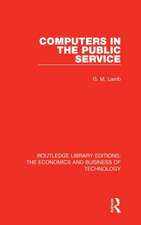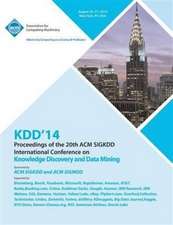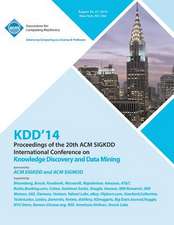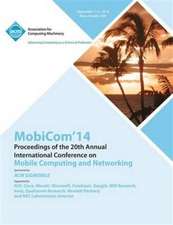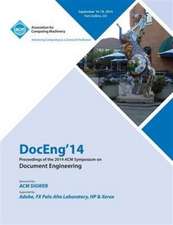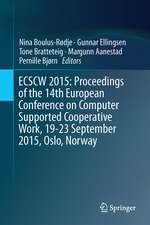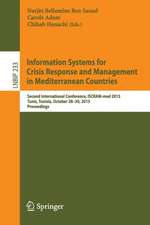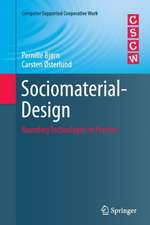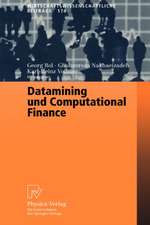Diversity in Computer Science: Design Artefacts for Equity and Inclusion
Autor Pernille Bjørn, Maria Menendez-Blanco, Valeria Borsottien Limba Engleză Paperback – 13 oct 2022
Diversity in Computer Science: Design Artefacts for Equity and Inclusion presents and documents the principles, results, and learnings behind the research initiative FemTech.dk, which was created in 2016 and continues today as an important part of the Department of Computer Science at the University of Copenhagen’s strategic development for years to come. FemTech.dk was created in 2016 to engage with research within gender and diversity and to explore the role of gender equity as part of digital technology design and development. FemTech.dk considers how and why computer science as a field and profession in Denmark has such a distinct unbalanced gender representation in the 21st century.
This book is also the story of how we(the authors) as computer science researchers embarked on a journey to engage with a new research field – equity and gender in computing – about which we had only sporadic knowledge when we began. We refer here to equity and gender in computing as a research field – but in reality, this research field is a multiplicity of entangled paths, concepts, and directions that forms important and critical insights about society, gender, politics, and infrastructures which are published in different venues and often have very different sets of criteria, values, and assumptions. Thus, part of our journey is also to learn and engage with all these different streams of research, concepts, and theoretical approaches and, through these engagements, to identify and develop our own theoretical platform, which has a foundation in our research backgrounds in Human–Computer Interaction broadly – and Interaction Design & Computer Supported Cooperative Work specifically.
Preț: 268.04 lei
Preț vechi: 335.06 lei
-20% Nou
Puncte Express: 402
Preț estimativ în valută:
51.30€ • 53.36$ • 42.35£
51.30€ • 53.36$ • 42.35£
Carte tipărită la comandă
Livrare economică 14-28 aprilie
Preluare comenzi: 021 569.72.76
Specificații
ISBN-13: 9783031133138
ISBN-10: 3031133137
Pagini: 122
Ilustrații: XIX, 122 p. 34 illus., 30 illus. in color.
Dimensiuni: 155 x 235 mm
Greutate: 0.21 kg
Ediția:1st ed. 2023
Editura: Springer International Publishing
Colecția Springer
Locul publicării:Cham, Switzerland
ISBN-10: 3031133137
Pagini: 122
Ilustrații: XIX, 122 p. 34 illus., 30 illus. in color.
Dimensiuni: 155 x 235 mm
Greutate: 0.21 kg
Ediția:1st ed. 2023
Editura: Springer International Publishing
Colecția Springer
Locul publicării:Cham, Switzerland
Cuprins
Chapter 1: The State of Diversity In Computer Science In 2022.- Chapter 2: Femtech.Dk Research Initiative.- Chapter 3: Interventionist Research.- Chapter 4: Makerspace Methodologies & Design Principles.- Chapter 5: Cyberbear & Cryptosphere: Sociomaterial-Design, Social Belonging, And Gender Representations.- Chapter 6: Grace: Designing Sociomaterial Assemblages Unpacking Gender Equity in Computing.- Chapter 7: Equity & Inclusion.- Chapter 8: Organizational Change for Equity & Inclusion.- Chapter 9: Final Reflections.
Notă biografică
Professor Pernille Bjørn, PhD, is an internationally recognized and highly esteemed researcher within the computer science area Human– Computer Interaction (HCI), with a specialized focus on Computer Supported Cooperative Work (CSCW). Dr. Bjørn became the first woman to become full professor in the Department of Computer Science at the University of Copenhagen (DIKU), when she was recruited in 2015. Dr. Bjørn created FemTech.dk in 2016, together with Dr. Maria Menendez-Blanco, and continues the work currently with Ph.D. candidate Valeria Borsotti. FemTech.dk focuses on Diversity, Equity, and Inclusion in Computer Science.
Maria Menendez-Blanco, PhD, is an interaction design researcher working in the fields of Human-Computer Interaction, Computer- Supported Collaborative Work, and Participatory Design. Her research focuses on how digital technologies can enable, or hinder, democratic processes of participation. she often collaborates with collectives,practitioners, and the public administration. Topics related to gender and intersectional aspects are core to her research - and to her academic and personal life. Following-up on her work in FemTech.dk, she is working on how interactive data representations can foster debates on gender.
Valeria Borsotti is a digital anthropologist and PhD candidate in the Department of Computer Science of the University of Copenhagen (Denmark), where she also serves as Diversity Chair. She holds a MS in Anthropology and a BA in Literary Theory. Her research focuses on equity, accessibility, and inclusivity in computing education, in particular looking at how social norms and values around gender and dis/ability are embedded in humor, spaces, artefacts, and organizational practices – and how we can effect positive change as a collective.
Textul de pe ultima copertă
This is an open access book that covers the complete set of experiences and results of the FemTech.dk research which we have had conducted between 2016-2021 – from initiate idea to societal communication.
Diversity in Computer Science: Design Artefacts for Equity and Inclusion presents and documents the principles, results, and learnings behind the research initiative FemTech.dk, which was created in 2016 and continues today as an important part of the Department of Computer Science at the University of Copenhagen’s strategic development for years to come. FemTech.dk was created in 2016 to engage with research within gender and diversity and to explore the role of gender equity as part of digital technology design and development. FemTech.dk considers how and why computer science as a field and profession in Denmark has such a distinct unbalanced gender representation in the 21st century.
This book is also the story of how we (the authors) as computer science researchers embarked on a journey to engage with a new research field – equity and gender in computing – about which we had only sporadic knowledge when we began. We refer here to equity and gender in computing as a research field – but in reality, this research field is a multiplicity of entangled paths, concepts, and directions that forms important and critical insights about society, gender, politics, and infrastructures which are published in different venues and often have very different sets of criteria, values, and assumptions. Thus, part of our journey is also to learn and engage with all these different streams of research, concepts, and theoretical approaches and, through these engagements, to identify and develop our own theoretical platform, which has a foundation in our research backgrounds in Human–Computer Interaction broadly – and Interaction Design & Computer Supported Cooperative Work specifically.
Caracteristici
This book is open access, which means that you have free and unlimited access Contextualizes the unbalanced gender representation in computing in Denmark historically Introduces four design principles for opening Computer Science as a field and profession using Makerspace Methodologies allowing people from diverse backgrounds to see themselves as successful within the field Demonstrates the principles through three IoT design artefacts: Cyberbear, Cryptoshere, and GRACE, and how these artefacts were used for data collection and interventions Situates important equity concepts within the computing domain allowing decision makers to learn and improve diversity, equity, and inclusion within computing organizations



